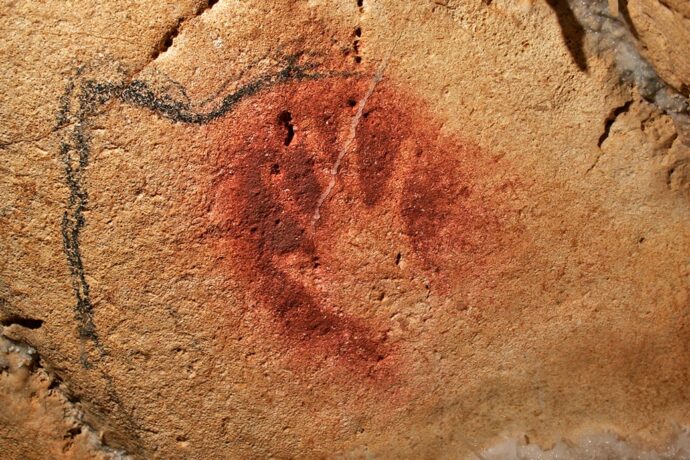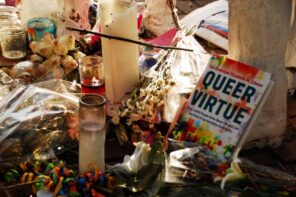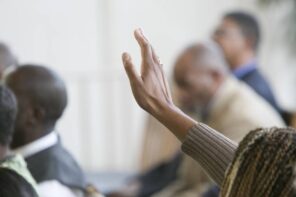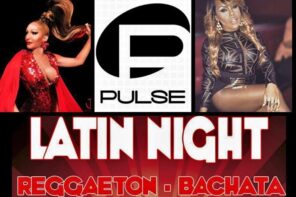I returned home this lovely and generous summer morning to find a book of essays by the equally lovely and generous poet Gerald Stern waiting in the mailbox. My son opened the package for me, as he likes to do, and I took up a wicker chair on the porch to dip into Stern’s prose.
It won’t be long before my son, a teenager, discovers the magic of girls. We worry about helping him navigate the new world he is about to enter. There is some sweet spot between free exploration and healthy and respectful engagement that no father or mother ever knows how to find. Parenthood is the fine art of slowly losing control.
You might ask, what if he discovers the magic of boys? So be it. Whoever he loves, he loves, and we will do our best to foster their bonds. He is a tender and responsible young man. I have no doubt that he will marry for life.
+++
It has been a week of great loss. On Saturday night, a gunman in a central Florida nightclub took 49 mostly young, mostly brown, mostly gay lives.
I marvel at the brief biographies of the dead I have seen, how many of them floated to Orlando from distant points as though it were their own personal Samarra. It seems a twisted necessity of God to require their souls so abruptly in a place of joy and refuge, a cruel grace that more than a few died with friends and partners.
The Lord will no doubt have some questions for me on the day of judgment, but I will have some for him as well. How could you let this happen to first graders, a prayer circle, social workers, dancers in a club? It is too much, too much.
Then the silence will fall. Like all of God’s silences, it will be both kindly and uncomfortable as the truth seeps up from the ground like Abel’s blood. We have failed the innocents. We have broken covenant with the dead. If our nation had any self-respect we would declare those killed in Orlando martyrs in the old sense of the word: witnesses before the idols of power and freedom. Remind me sometime to write their requiem mass.
No, let the dead bury the dead. The living have their own troubles. We have lost so much to empire and grief. And still, we must bear the unbearable—which is to look upon the faces of dead children and know that our own lives continue.
+++
I read an article last night on the Chauvet Cave in southern France, which contains ancient, astonishing paintings discovered in 1994. They are filled with wonder, color, raw power, more life-like than life. But here’s the thing: scientists say rockfall closed the cave to the outside ages ago. Chauvet and its contents went unseen for 28,000 years while the world continued around it, summer to winter and back, a million griefs and more ignored in all that time.
The hope of the dead feels like that sometimes, the mystery of their hidden lives and our own. Reconciliation takes a long time to accomplish; reconciliation with justice takes even longer.
Here and now, it is a pleasant Wisconsin day in June. I have no idea if there are any hidden caverns in our neighborhood waiting to be opened. It’s supposed to get hot later, with thunderstorms overnight. My son has gone off to the county pool, which is near our house. I can hear a neighbor cutting his lawn. I should really do the same. But what keeps running through my head is a winter prayer, a collect for the Third Sunday in Advent:
Stir up your power, O Lord, and with great might come among us; and, because we are sorely hindered by our sins, let your bountiful grace and mercy speedily help and deliver us.
Yes, Lord, come quickly. Fix this mess we have gotten ourselves into.
Like any psalmist, I want God’s justice to come down with great might and rubbish the evildoers: the unjust, the oppressors, the violent. But speed isn’t how God operates. The Lord’s omnipotence is often misunderstood on this point. What it means is that there is no force or object strong enough to withstand the strange and patient action of God’s love.
Love wins like water, slowly, achingly slowly—for if it forced its victory, love would no longer be itself. In the meantime, there are terrible words to be heard: Your son is dead. Your daughter is dead. It’s hot again today, maybe thunderstorms later.
+++
Gerald Stern, reflecting on his relationship with Allen Ginsberg, makes an offhand mention of “Hymn to God the Father,” a favorite poem by John Donne. It begins:
Wilt thou forgive that sin where I begun,
Which was my sin, though it were done before?
Wilt thou forgive that sin, through which I run,
And do run still, though still I do deplore?
When thou hast done, thou hast not done,
For I have more.
It is often said that racism is America’s original sin, but there is another like unto it, which is our freedom. It is the sin where we begun. Throughout our nation’s history, we have untied the knots of oppression only to be paralyzed by the choices of others, as if by snakebite.
There is no magic or mystery in this. A friend reminds me that in rural areas, guns are symbols of independence, of taking care of your own, of putting meat on the table. Country people shy at the thought of giving up their rifles because they feel unheard and neglected by distant power, she says. I believe her; I know her people too.
But the same law that buys a venison steak in the Great Northwoods brings a cheap Taurus pistol to Baltimore, to people who also feel unheard and neglected. (Never mind the strange psychology of the “lone wolf.”)
So the freedom to live without threat and the freedom to own a gun are at odds. Someone will have to win and someone will have to lose. I mean this quite literally. The only way to have meaningful gun control will be to vote people out of office.
The popular cry is to have enough moral courage and political will to take guns off the streets. The latter certainly, but I’m not concerned with the former. A venal majority will do just fine. Until the numbers are there, moral or otherwise, we will continue to repeat the sin of senseless bloodshed.
This will not change soon. God will have to forgive us again. We must live with the awful burden of new life: the birthday of a fatherless child, a polled tree, the weight of the sun and the breeze, the solid ache in your chest that knows things might have been different.
Wilt thou forgive that sin which I have won
Others to sin, and made my sin their door?
Wilt thou forgive that sin which I did shun
A year or two, but wallow’d in, a score?
When thou hast done, thou hast not done,
For I have more.





